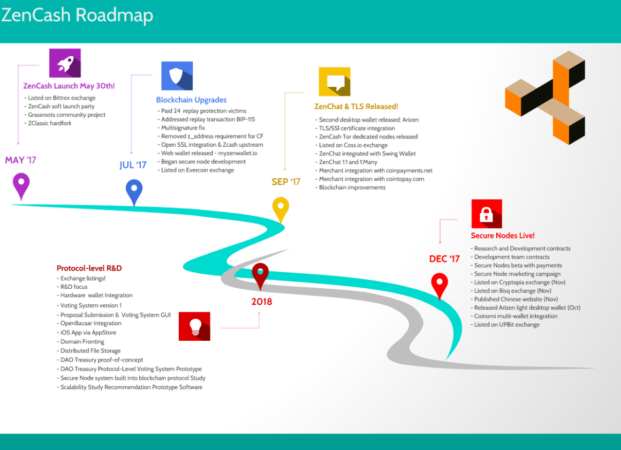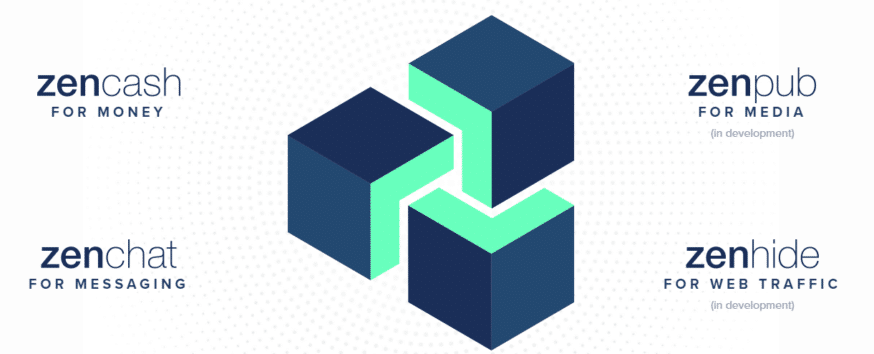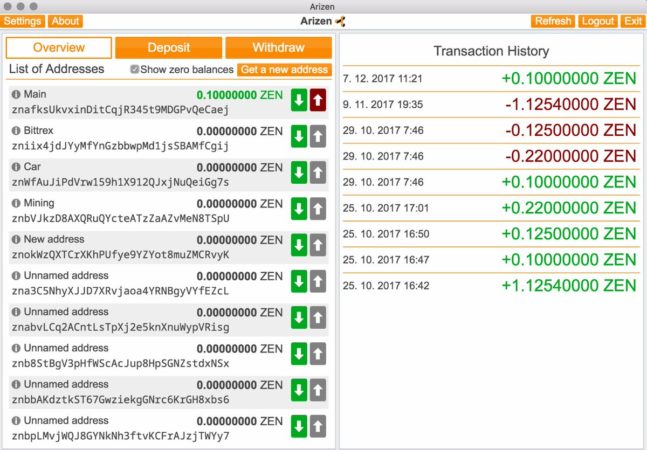Why do we need privacy?
Before we get into the nitty-gritty of ZenCash, let’s first consider: why do we need privacy?
Thanks to Edward Snowden (an ex-CIA, NSA intelligence officer and whistleblower) we now know the NSA’s “collect all” process in place attempting to collect, monitor and store all forms of human communications on earth.
The Guardian covered this in detail: Numerous NSA documents we’ve already published demonstrate that the NSA’s goal is to collect, monitor and store every telephone and internet communication that takes place inside the US and on the earth. It already collects billions of calls and emails every single day.”
According to Snowden, privacy is not just about protecting our information it’s a fundamental human right.
“Privacy isn’t about something to hide. Privacy is about something to protect. That’s who you are. That’s what you believe in, that’s who you want to become. Privacy is the right to the self. Privacy is what gives you the ability to share with the world who you are, on your own terms, for them to understand what you’re trying to be. And to protect for yourself the parts of you that you’re not sure about, that you’re still experimenting with. If we don’t have privacy, what we’re losing is the ability to make mistakes. We’re losing the ability to be ourselves. Privacy is the fountainhead of all other rights. Freedom of speech doesn’t have a lot of meaning if you can’t have a quiet space.”
~Edward Snowden, when asked to respond to the quote: “If you aren’t doing anything wrong, you have nothing to worry about.”
What is ZenCash?
Meet Zen Cash, the first ever TLS end-to-end encrypted anonymous money network, messaging service, content platform and decentralized autonomous organization (DAO)
The ZenCash team echoes a similar sentiment of wanting increased privacy and liberty for users in their whitepaper: “We live in a hyper-regulated and surveilled world where billions of individuals are deprived of basic human rights, such as property ownership, privacy, free association, and access to information.”
Specifications
Algorithm: Equihash
Total eventual supply: 21,000,000 million (same as Bitcoin)
PoW block reward: 12.5 ZEN
Current circulating supply: 3,274,188
Division of each PoW block: 3.5% Secure Nodes reward , 8.5% ZenCash team treasury, 88% miners reward.
Coins per month: 216000 ZEN’s
Blocktime: 2.5 minute
Reward halving period: every ~4 years, as per Bitcoin
Coin Distribution
Miners: 88%
Secure Nodes: 3.5%
Core team: 8.5%
About ZenCash
ZenCash launched May 23rd 2017 as a fork of Zclassic, a fork of Zcash. All Zclassic owned before block 110,000 received a 1:1 ratio of ZenCash.
This means if you had 100 Zclassic, you would receive 100 ZenCash. This “airdrop” style approach preserved Zclassic but and brought community support to ZenCash as well.
Zclassic began to remove Zcash’s 20% Founders Reward for the first four years and the slow start to the money supply. The reason for expanding into a new fork was because of security. It also extended the functionality as a fully encrypted network along with innovative economic and governance models.
The white paper elaborates further: “We view Zclassic as a fundamentally pure open-source, all-volunteer cryptocurrency project, while Zen extends into a platform with internal funding to facilitate a broader set of communications, file-sharing, and economic activities.”

How ZenCash Works
As discussed in this Zcash article, shielded and transparent options allow users to protect their transactions as completely private (anonymous ‘z’ address) or transparent (pseudonymous ‘t’ address).
ZenCash incorporates secure messaging functionality within shielded transactions which completely protects user identities.
There are 3 main systems behind this:
- ZenChat – Although Zcash already possesses a messaging feature, no wallet to date has taken advantage of that feature. ZenChat makes this feature usable with a customized secure communications network
- ZenPub – An anonymous document publishing platform using IPFS is in the works in tandem with ZenCash development
- ZenHide – The ability to circumnavigate crypto-commerce blocking using domain fronting.
ZenChat – encrypted text-based messaging through the Blockchain
ZenChat messages are encrypted with industry recognized and trusted algorithms like AES-256. Using the 512 character limit text field (per the original Zcash design) of a transaction, messages can appended and send to users.This facilitates secure commerce and communication.
ZenPub – A secure content publishing platform through open-distribution protocols
ZenPub allows users to publish documents anonymously to IPFS through the text field of a z address. Based on testing, IPFS is the current supported infrastructure for publishing. The system, however, can extend to other distributed archives.
ZenHide – Domain fronting protects user and cryptocurrency data from hostile regulator bans
Countries hostile to cryptocurrency can block Bitcoin and even Zcash. ZenCash uses domain fronting technique that hides the endpoint of a communication. ZenCash specifically connecting a commercial content distribution (CDN) with Hypertext Transfer Protocol Secure (HTTPS), a more secure variant of the standard web architecture.
Ultimately, Zen takes the top security use cases on the market and bundles them into a new token, application and platform with additional built-in security and anonymity at a protocol level.

Other ZenCash long-term use cases include:
- Governance as a Service (GaaS) – Opening up their governance model and platform for other initiatives to use
- Decentralized asset exchange (DEX) – The ability to host and issue new tokens in a completely decentralized manner
- Selective proof of title for property – Taking on property management needs by securely transferring ownership digitally through a trustless system
- Decentralized banking services – The ability to borrow and lend mediated through the Blockchain
- P2P insurance – A system where members pool their resources to deal with premiums and other coverage
Secure Nodes vs Masternodes
Masternodes (aka bonded validator systems) act as blockchain protectors from network attacks. They function similar to proof of stake algorithms but using slightly different incentives and market structure.
Masternodes (like with DASH) serve functions like instant and anonymous payments. Additionally, they support decentralized governance where node operators can vote on any issues.
One critique of miners is the incentives can switch from one coin to the next as day to day as profitability and difficulty fluctuates. To remedy that, Masternodes require a set amount of collateral to operate the node keeping operators loyal.
The way Masternodes receive compensation through a dividend-like yield (similar to Bitcoin’s miner rewards).
ZenCash works on a a similar incentive model. Slight modifications warranted a name change to secure nodes rather than “masternodes.” The difference is to not lock coins out of the network (causing artificial inflation), keep a low barrier to entry and ensure network security.
Secure Nodes are rewarded for providing critical functions like:
- Ensuring all network communications are encrypted between nodes and wallet
- Maintaining full ZenCash blockchain
- Providing certificate-based encryption connections for ZenCash wallet applications
Secure nodes maintain a standard of security and performance. This ensures the system remains distributed and resistant to DDoS and other attacks.
Secure nodes only require staking 42 ZEN. This creates a much lower barrier to entry and allows more people a chance at running a secure node. Other Master node systems typically require a significant investment (e.g. DASH requires 1000 tokens which is over $300K)
Ultimately, secure nodes lower the barrier to entry for users. Additionally, they enforce encrypted communication between nodes. As a result, they protect against eavesdropping.
Challenges and Critiques
As discussed in the Hush and Zcash articles, ZenCash uses the same trusted private keys and ceremony as Zcash. This means any issues with backdoor would also apply to ZenCash

Rolf Versluis, Chief Engineer of Zencash, comments further:
“ZenCash (and Zclassic AFAIK) use the original Zcash parameters created in the Zcash Parameter Generation ceremony.
After reviewing the process the Zcash team completed for the ceremony, the ZenCash team believed it was done in a way that minimized the possibility of any issues with the “Hazardous Waste”.
The intention was that if ZenCash found market support we would be either able to hold a new parameter generation ceremony or we would move to a different underlying software system and would move to a different set of parameters at that time.”
On a more encouraging note, this would not affect the protocol level communication and security measures in place even if there is a vulnerability. In addition, thus far there has not been evidence that the ceremony itself or any of the actors acted maliciously.
New and Noteworthy Developments
- Zen Help – Service desk system knowledge-base and customer service ticketing system
- 7240+ secure nodes – This is quite an accomplishments and indicates a very resilient, secure Blockchain
- IOHK Partnership – Created by Charles Hoskison of Cardano, IOHK is a Fintech focused data science firm which will be doing a deep dive of analytics for ZenCash
- Ledger wallet support – Users can now send and receive ZEN with their hardware wallet
As you can see, ZenCash has been busy growing, expanding their team and secure node network. ZEN also remains a top 10 Equihash mineable coin in profitability.
Where can you store ZenCash?
ZenCash has a variety of wallet formats across several operating systems:
- Arizen and Swing wallets – Developer recommended and supported desktop wallets for Windows, Mac and Linux
- Web wallet – A nifty web interface which allows wallet access through a browser
- Android – A convenient mobile wallet available for Android users
- Paper wallet – One of the most rudimentary and offline methods for storing Cryptocurrencies

Arizen wallet available on Windows, Mac and Linux
Where to Buy or Sell ZenCash
The highest volume exchanges include Bittrex and Cryptopia.
Where to Mine Zen
Some of the top mining pools include https://zenmine.pro/ and https://zen.suprnova.cc/ but there are dozens to choose from.
Conclusion
ZenCash is a true leader not only in privacy but with governance, economic incentives and sheer engineering ingenuity. Zen is the first ever Cryptocurrency to build in TLS. It protects not only the protocol but also the data packets sent between communications.
Their secure node system allows a low barrier to entry, passive income stream for node operators. They serve the network by enforcing strict privacy requirements, maintaining full histories, and encrypting network data.
Many people say, “when Lambo”… I say, when privacy? With initiatives like ZenCash, perhaps the answer is, now privacy.
The post What is ZenCash (ZEN)? | Beginner’s Guide appeared first on CoinCentral.

TheBitcoinNews.com – Bitcoin News source since June 2011 –
Virtual currency is not legal tender, is not backed by the government, and accounts and value balances are not subject to consumer protections. TheBitcoinNews.com holds several Cryptocurrencies, and this information does NOT constitute investment advice or an offer to invest.
Everything on this website can be seen as Advertisment and most comes from Press Releases, TheBitcoinNews.com is is not responsible for any of the content of or from external sites and feeds. Sponsored posts are always flagged as this, guest posts, guest articles and PRs are most time but NOT always flagged as this. Expert opinions and Price predictions are not supported by us and comes up from 3th part websites.
Advertise with us : Advertise
For the latest cryptocurrency news, join our Telegram!











